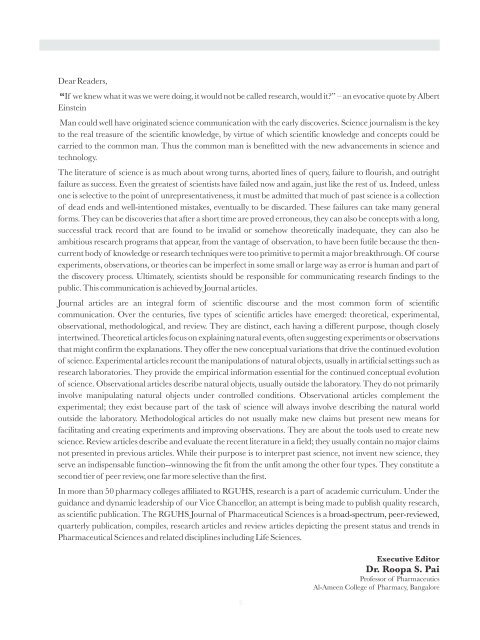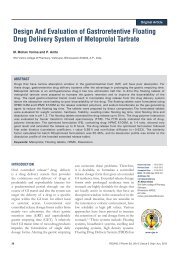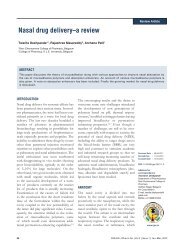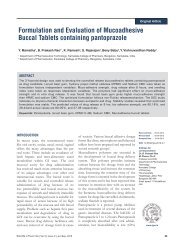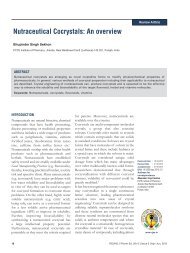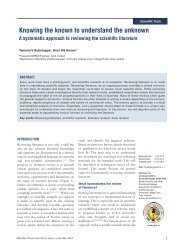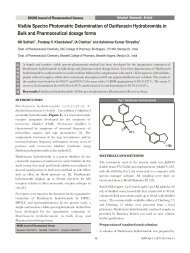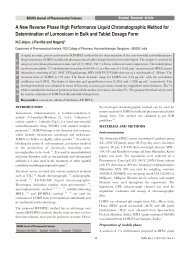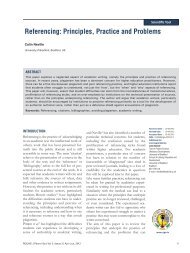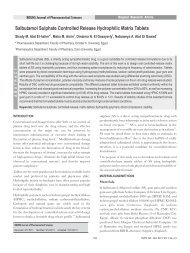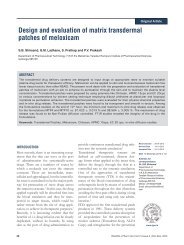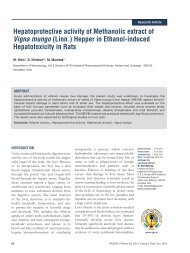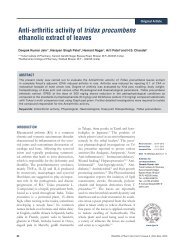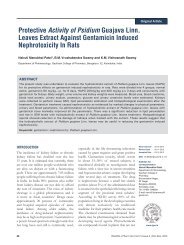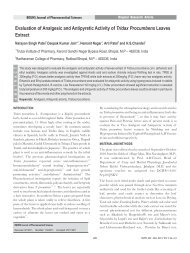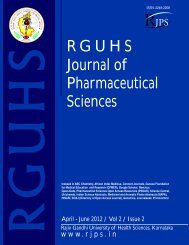final .cdr
final .cdr
final .cdr
You also want an ePaper? Increase the reach of your titles
YUMPU automatically turns print PDFs into web optimized ePapers that Google loves.
Dear Readers,<br />
“If we knew what it was we were doing, it would not be called research, would it?” – an evocative quote by Albert<br />
Einstein<br />
Man could well have originated science communication with the early discoveries. Science journalism is the key<br />
to the real treasure of the scientific knowledge, by virtue of which scientific knowledge and concepts could be<br />
carried to the common man. Thus the common man is benefitted with the new advancements in science and<br />
technology.<br />
The literature of science is as much about wrong turns, aborted lines of query, failure to flourish, and outright<br />
failure as success. Even the greatest of scientists have failed now and again, just like the rest of us. Indeed, unless<br />
one is selective to the point of unrepresentativeness, it must be admitted that much of past science is a collection<br />
of dead ends and well-intentioned mistakes, eventually to be discarded. These failures can take many general<br />
forms. They can be discoveries that after a short time are proved erroneous, they can also be concepts with a long,<br />
successful track record that are found to be invalid or somehow theoretically inadequate, they can also be<br />
ambitious research programs that appear, from the vantage of observation, to have been futile because the thencurrent<br />
body of knowledge or research techniques were too primitive to permit a major breakthrough. Of course<br />
experiments, observations, or theories can be imperfect in some small or large way as error is human and part of<br />
the discovery process. Ultimately, scientists should be responsible for communicating research findings to the<br />
public. This communication is achieved by Journal articles.<br />
Journal articles are an integral form of scientific discourse and the most common form of scientific<br />
communication. Over the centuries, five types of scientific articles have emerged: theoretical, experimental,<br />
observational, methodological, and review. They are distinct, each having a different purpose, though closely<br />
intertwined. Theoretical articles focus on explaining natural events, often suggesting experiments or observations<br />
that might confirm the explanations. They offer the new conceptual variations that drive the continued evolution<br />
of science. Experimental articles recount the manipulations of natural objects, usually in artificial settings such as<br />
research laboratories. They provide the empirical information essential for the continued conceptual evolution<br />
of science. Observational articles describe natural objects, usually outside the laboratory. They do not primarily<br />
involve manipulating natural objects under controlled conditions. Observational articles complement the<br />
experimental; they exist because part of the task of science will always involve describing the natural world<br />
outside the laboratory. Methodological articles do not usually make new claims but present new means for<br />
facilitating and creating experiments and improving observations. They are about the tools used to create new<br />
science. Review articles describe and evaluate the recent literature in a field; they usually contain no major claims<br />
not presented in previous articles. While their purpose is to interpret past science, not invent new science, they<br />
serve an indispensable function--winnowing the fit from the unfit among the other four types. They constitute a<br />
second tier of peer review, one far more selective than the first.<br />
In more than 50 pharmacy colleges affiliated to RGUHS, research is a part of academic curriculum. Under the<br />
guidance and dynamic leadership of our Vice Chancellor, an attempt is being made to publish quality research,<br />
as scientific publication. The RGUHS Journal of Pharmaceutical Sciences is a broad-spectrum, peer-reviewed,<br />
quarterly publication, compiles, research articles and review articles depicting the present status and trends in<br />
Pharmaceutical Sciences and related disciplines including Life Sciences.<br />
3<br />
Executive Editor<br />
Dr. Roopa S. Pai<br />
Professor of Pharmaceutics<br />
Al-Ameen College of Pharmacy, Bangalore


